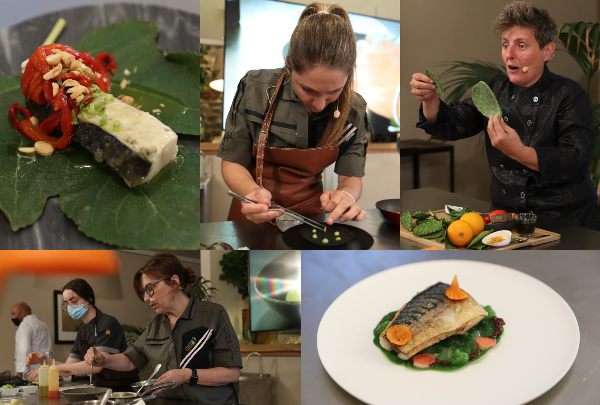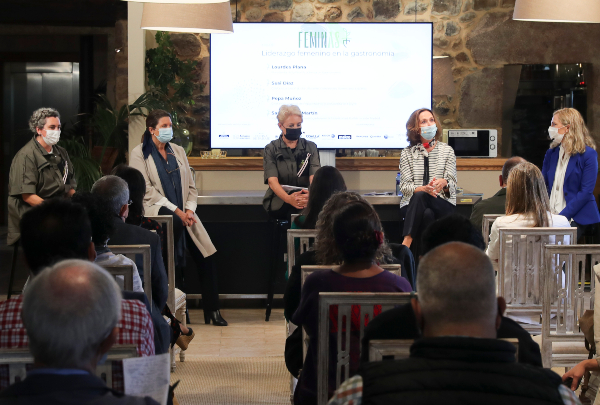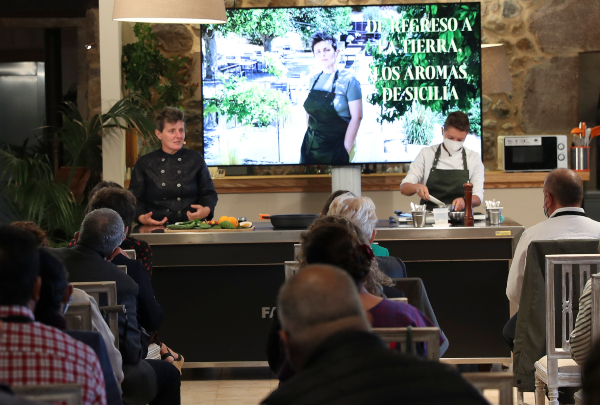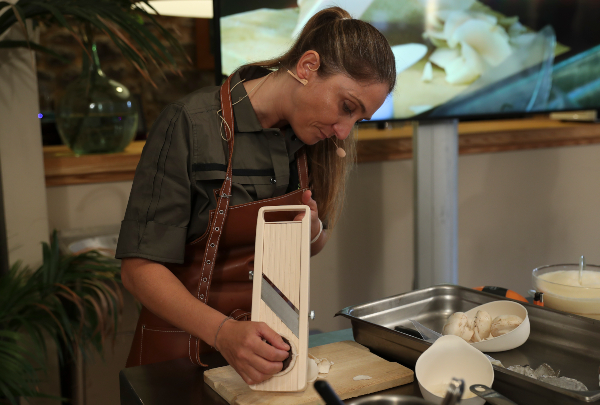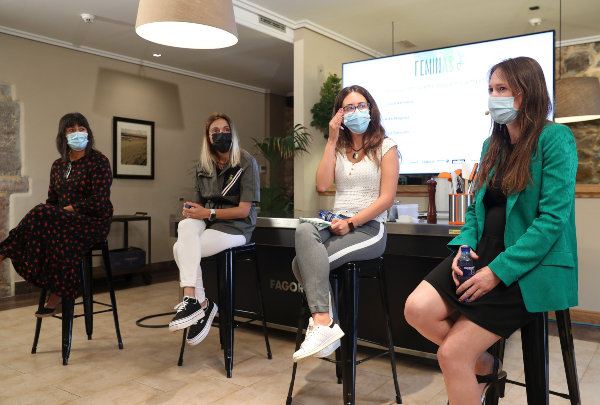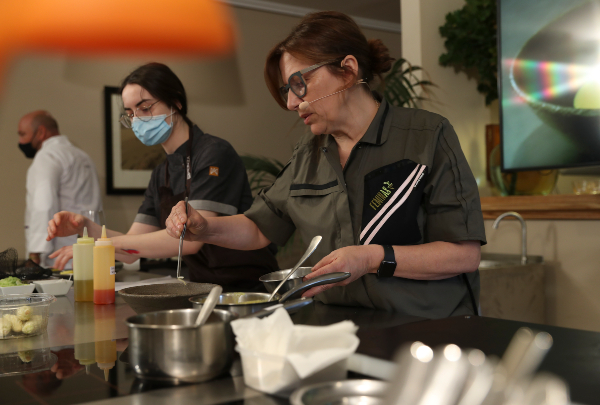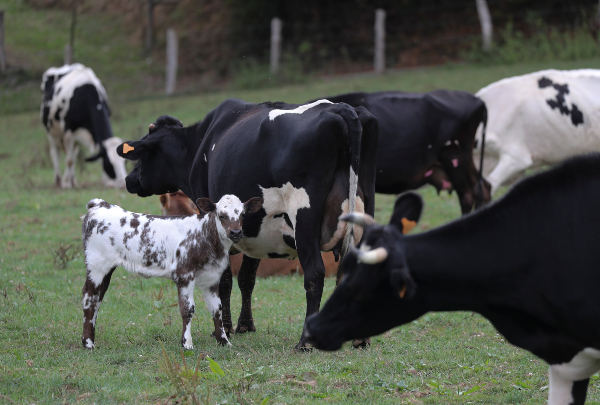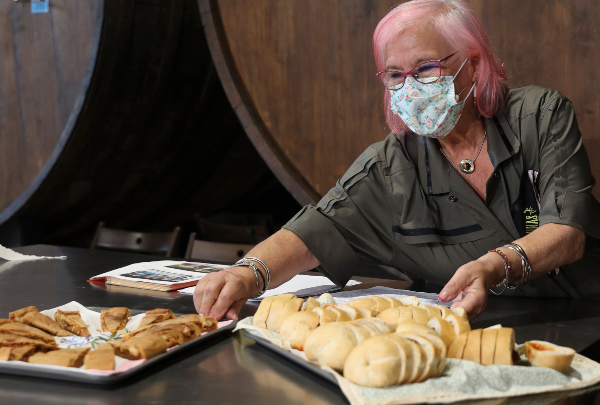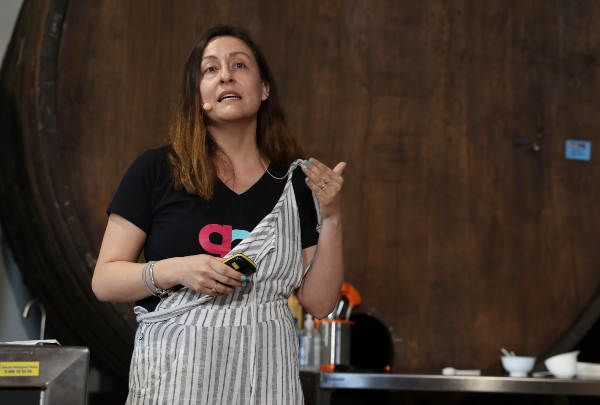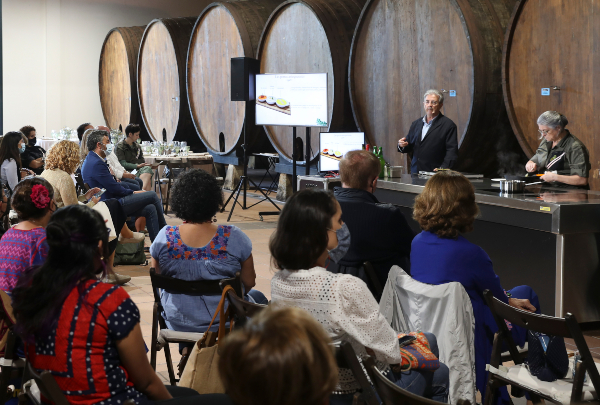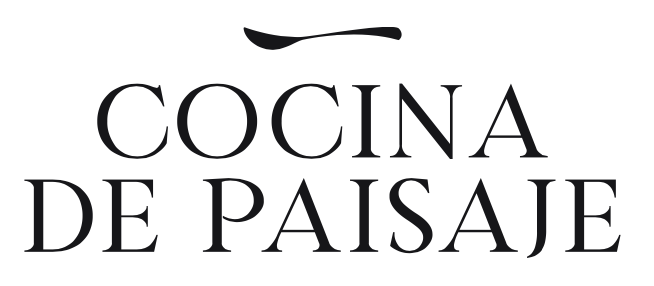News
Victoria Blamey: “we have a social responsibility as chefs"
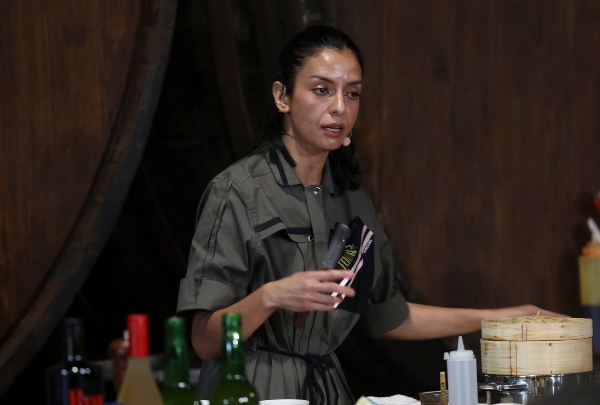
Originally from Chile, but a resident of New York for the last twelve years, Victoria Blamey took the floor at FéminAs to talk about haute cuisine not only as "artistic" expression, but also as a social responsibility.
Victoria Blamey is a well-travelled woman. She left her native Chile seventeen years ago, and finally ended up in New York after stints in the United Kingdom, Australia and Spain. The chef, who studied history, admits she never considered cooking as her main employment option because it was a profession mainly dominated by men in her country of origin. Vocation finally prevailed, and she worked at stoves in restaurants all over the world until she eventually came up with her own project, Meda, in America's skyscraper city.
Blamey sees haute cuisine as more of an "artist's expression" or of enjoyment as a social tool, helping to convey knowledge, preserve traditions, signal identity, encourage healthy eating, take a responsible attitude to the environment, and in particular as a sign of the times.
All these aspects come together in the recipes at her restaurant, displayed at the FéminAs congress. The local variety of mussels from southern Chile, with a base of onion, shallots, leek, black garlic, white vermouth and sweet paprika, during a live cook-in along with images of her recipes also demonstrating the use of aquaculture in her range. As she explained the photographs, Victoria mentioned two women carrying out an important task in New York: Lisa Calvo and Briana at Atlantic Seafarm. Both of them have undertaken projects - the former with oysters, and the latter with the cultivation of algae - for a social purpose. Lisa harvests oversized oysters which she then recultivates in New Jersey and cleans off their water, and Briana cultivates algae to enable lobster fishermen - who have no work during the winter months - a second salary.
During her talk, Victoria was keen to point out the importance of cookery in a healthy diet. “Cooking is almost like medicine, it has to be healthy, and as chefs we must be responsible with the kind of ingredients we use in our recipes. Fewer stock cubes and more healthy food”. She also touched on the adverse climatic incidents around the world to demonstrate the importance of respect for the environment, and how the profession has to raise awareness. “Haute cuisine is not just for enjoyment, but also to emphasise healthy eating and responsibility. People have to realise that we must educate”.
Victoria completed her talk by paying homage to the women in her life, with photographs of them, defining them as essential characters in her life for an understanding of who she now is. “People talk about glass ceilings, but one facet of women is that we always find a way in. We're perseverance, humility and hard work”.

